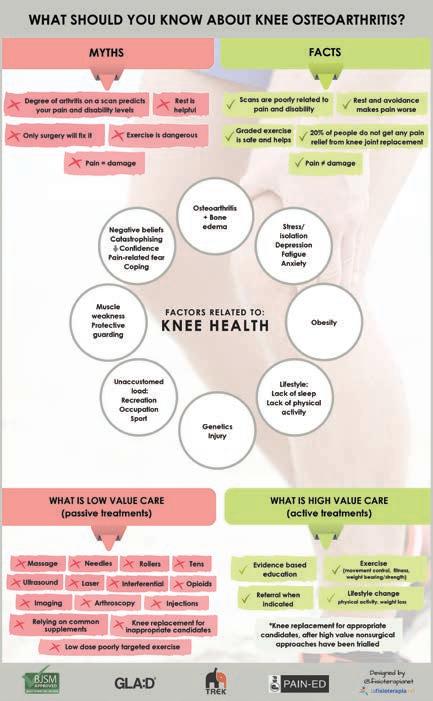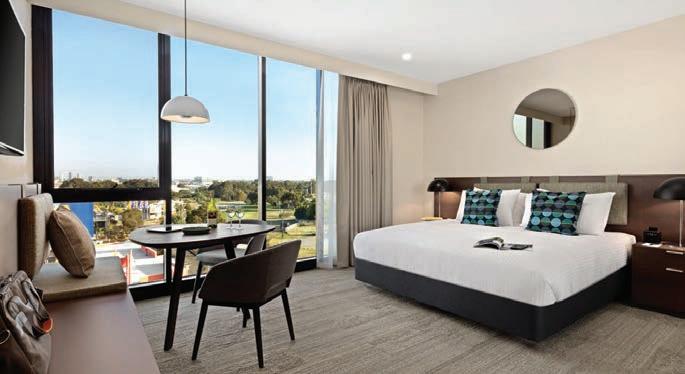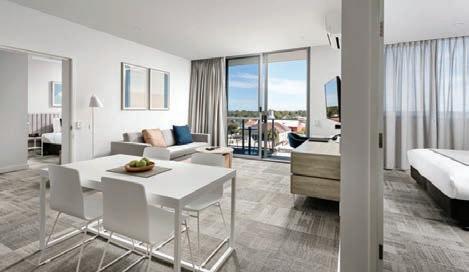
4 minute read
Knee AO
Knee OA – joint damage or joint health
By Dr JP Caneiro PhD, Specialist Sports Physiotherapist, Shenton Park
“It’s bone on bone…caused by wear and tear”, This is the common understanding of knee osteoarthritis (OA) affecting 9% of Australians.
Best-practice guidelines recommend first line non-surgical interventions such as education, progressive strengthening exercise and weight loss. Evidence supports these interventions as effective at reducing pain and disability, lessening use of medication and surgery.
However, common misconceptions about knee OA negatively influence clinicians’ referral to, and patients’ acceptance of, nonsurgical management. Australian GPs are three times more likely to refer patients with knee OA for surgical opinion, than nonsurgical management.
When OA diagnosis is given based on imaging, patients are generally told their pain is due to ‘bone on bone’. This may lead many patients to disregard exercise-based interventions believing it would further damage their joints.
A person’s knee pain experience is influenced by biological (imaging findings, inflammatory processes, muscle weakness), psychological (low confidence, belief that exercise will cause damage, emotional stress, depressed mood), and social (work and sport demands), and lifestyle factors (poor sleep, low or excessive physical activity, obesity) that can mediate neurophysiological and inflammatory processes, sensitising knee structures and driving disability behaviours such as avoiding activity.
Clinicians should move from labelling knee OA as purely ‘structural damage’ towards understanding it as a ‘whole person condition’ with pain as a modifiable symptom related to sensitised knee structures.
Thus, we should adopt a personcentred approach, educating the patient about knee health, encouraging progressive exercisetherapy, regular physical activity
and weight loss, and reassure that it is safe to exercise and strengthen their knee without harm.
This helps patients build a positive mindset, adopt a healthier lifestyle and confidently manage pain flareups. Surgery is then reserved for patients with advanced OA, without adequate response to non-surgical care, and who are predicted to have a good response to surgery.
Management can be individualised with a physiotherapist or in a group environment. Group rehabilitation programs such as GLA:D TM (Good Life with Arthritis: Denmark) developed by researchers in Denmark is an evidence-based option for OA patients.
GLA:D TM is a physiotherapistled treatment consisting of two group education, and 12 group exercise-therapy sessions for people with OA. Research in Denmark reported pain reduction by 35%, reduced analgesic consumption; and improved function and physicalactivity level at one year.
Key messages
OA changes on imaging do not solely explain a person’s pain experience Exercise is safe and strengthens a knee with OA changes without causing harm Address the multiple biopsychosocial factors affecting pain and disability.
To change the view about OA towards joint health, changes need to occur at a public level through media campaigns, at the health system level with funding, and better reimbursement for exercise and education programs, and at a clinician level with the provision of evidence-based care.
References available on request
The author acknowledges the input of Prof Peter O’Sullivan
Author competing interests – nil

Quest Fremantle


Quest Innaloo
Quest South Perth Foreshore


Quest Mounts Bay Road

Quest Midland
STAY CLOSE TO YOUR LOVED ONES AT QUEST APARTMENT HOTELS WA
Quest Apartment Hotels in Western Australia are ideally positioned in the places you need to be. With an abundance of space along with fully equipped kitchens, and laundry facilities, you can feel right at home and be close by to Perth’s greater metropolitan hospital locations.
N Joondalup Health Campus (Private + Public) Quest Joondalup
Glengarry Private Hospital
Rockingham General Hospital Fiona Stanley Hospital St John of God Murdoch Hospital Fremantle Hospital Attadale Rehabilitation Hospital Bentley Hospital Osborne Park Hospital
Kalamunda Hospital St John of God Midland Public & Private Hospital Armadale-Kelmscott Memorial Hospital Quest Rockingham Quest Fremantle Quest Innaloo
Quest Mounts Bay Road Quest South Perth Foreshore Quest Midland Waikiki Private Hospital THE QUEST POINTS OF DIFFERENCE: ✔ Complimentary high speed WiFi ✔ 24 hour on-site Management ✔ Fully equipped kitchens ✔ Pantry shopping service ✔ Configurable bedding (king or 2 x single beds) ✔ One, Two and Three Bedrooms available (dependant on hotel booked) ✔ Local restaurant chargeback options
Promo Code: HEALTH2020 Visit questapartments.com.au and use the promotional code HEALTH2020 to access our best rates at the following hotels: Quest Joondaup Quest Innaloo Quest Midland Quest Fremantle Quest Mounts Bay Road Quest South Perth Foreshore Quest Rockingham Bethesda Hospital Hollywood Private Hospital Sir Charles Gairdner Hospital Mount Hospital Perth Cinic
Royal Perth Hospital Next Step Drug & Alcohol Services Colin Street Day Hospital Abbotsford Private Hospital Oxford Day Surgery and Dermatology Selby Authorised Lodge Graylands Selby-Lemnos and Special Care Health Service
Perth Children’s Hospital King Edward Memorial Hospital for Women St John of God Subiaco Hospital
Quest Mounts Bay Road
Quest South Perth Foreshore










